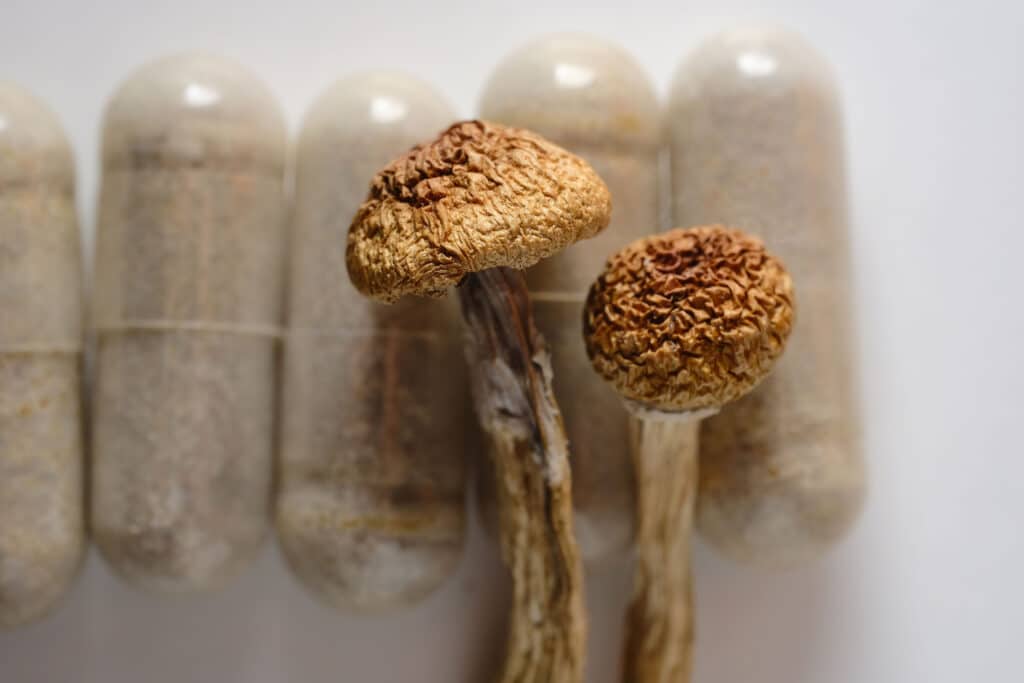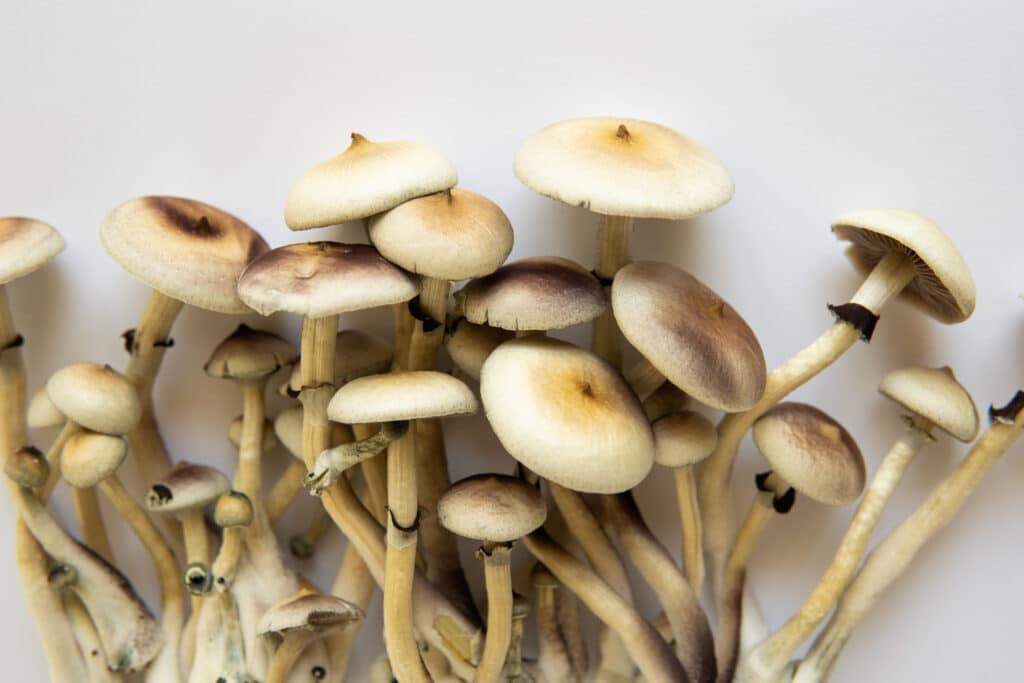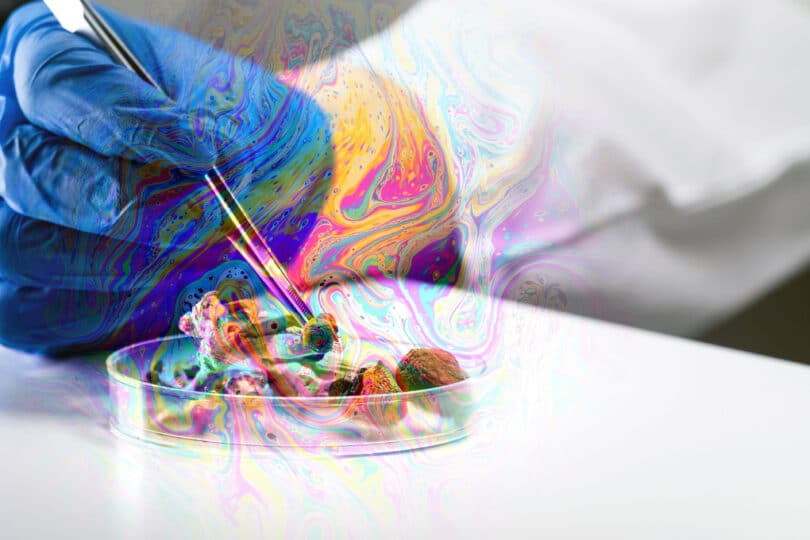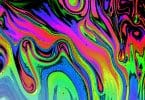Recently, yet more research was released from Phase II trials, that shows psilocybin as a more powerful tool for depression, than placebo.
New research indicates psilocybin better than placebo
The study in question is not complete, and all results that I’m about to go over, are interim results for Phase II trials. Phase II trials are safety and dosing trials that come after initial trials meant to test the basic pharmacology on a population that has whatever issue requires the treatment. Phase II trials have bigger sample sizes than Phase I trials, but smaller than the following Phase III trials, which include hundreds or thousands of patients, and which are used to really test efficacy and safety for the wider population.
On October 31st, biotech company Cybin released data on its completed Phase II trials into what it calls a ‘next-generation’ psilocybin treatment. Basically, any company that wants to work with psilocybin, must make their own version of it. Psilocybin is naturally occurring, and cannot be patented. Which is why all research on psilocybin medications, involves novel formulations made by different companies. The drug in this case, is called CYB003.
According to an announcement through BusinessWire, Cybin’s research results for its experimental psilocybin medication, CYB003, show “rapid, robust, and clinically significant reduction of depression symptoms three weeks after a single 12mg dose, with an unprecedented mean -14 point Montgomery-Asberg Depression Rating Scale (“MADRS”) score reduction from baseline between CYB003 (12mg) vs. placebo (p= 0.0005).”

It is further expanded that there was, “Robust response and remission three weeks after single dose, with 53.3% of patients responding and 20% of patients in remission (no longer meeting the clinical definition of depression) vs. 0% for placebo.” In terms of whether there were adverse reactions to this treatment, the release states that CYB003 shows “Favorable safety and tolerability profile with no treatment-related serious adverse events at 12 mg dose.”
According to Cybin’s CEO Doug Drysdale, “The overwhelmingly positive interim results for the 12mg dose of CYB003 are extremely encouraging for patients and providers. The efficacy demonstrated at that dosage showed an unprecedented reduction in depressive symptoms compared to currently available treatments.
With these encouraging results in hand, we look forward to sharing the full complement of topline data later this quarter, and 12-week durability data in the first quarter of 2024”. He continued, “Our planning continues as we prepare for a larger international, multisite Phase 3 trial in early 2024 to further evaluate the safety and efficacy of CYB003 in people suffering from MDD.”
Cybin, which is based out of Canada, is a company in the bio-pharmaceutical space which investigates psychedelic therapies for depression issues. The company is also currently studying another drug of its own creation, CYB004, which is a DMT drug meant for generalized anxiety disorder.
How is this measured?
A lot of research comes out all the time which asses information in different ways. When looking at headlines, it can often be a bit bewildering how conclusions are reached. After all, these results are saying that people were less depressed in a significant way, after a dose of this psilocybin treatment. But, how is that known?
In this study, investigators measured depression via the MADRS (Montgomery–Åsberg Depression Rating Scale). This scale is given by a clinician, and measures depression by way of 10 different metrics. It’s used to assess how severe a person’s MDD (major depressive disorder), actually is. This scale is standard in many clinical trials that deal with depression, and is accepted all over the globe as a means of assessing depressive symptoms.

The scale looks at how sad a person feels, changes in sleep patterns, changes in appetite, issues with concentration, issues with not feeling happiness (anhedonia), and suicidal (or otherwise negative) thoughts. Each metric gets a score from 8-60. Normal function is associated with scores of 0-6, mild depression with scores of 7-19, moderate depression with scores of 20-34, and severe depression as anything above 34.
The average baseline score in the study – as in the average score of participants before the study began, was 32.6 for the group that got the psilocybin, and 33.3 for the placebo group. This signals that all participants (or a great majority) came in with moderate or major issues with depression.
Let’s break it down a little further
So we know that Cybin conducted trials with participants who scored high on this depression rating scale, and we know that participants were given one dose of psilocybin, and tested three weeks later; and that a large percentage showed improvement. Some to the degree of no longer needing further therapy. Let’s look a little closer at this data.
For one thing, in terms of how fast the treatment worked, investigators found that improvements were seen as soon as the day after the dose was given; although improvements peaked at about 10 days following the treatment, and then stayed consistent through the end.
In terms of how much of a change there was, and its significance; investigators describe it as “Robust and statistically significant reduction in depression symptoms compared to placebo.” CYB003 netted a MADRS reduction of -14.08 from the baseline measurement, compared to placebo. This means, if a person started with a score of 35, it could have dropped – on average – to something like 21, going from severe to moderate. The -14.08 is not specific across the board, but it does indicate a large drop in depressive symptoms across the board.
When investigators call it a ‘robust’ response, it means their results show ≥50% reduction in MADRS scores. When they use the word ‘remission’, this means a MADRS score ≤10. Three weeks after the dose was given, 53.3% of those who received 12mg, had a response of some kind, vs 0% in the placebo category. 20.0% showed remission at this point, vs 0% for placebo.

In terms of negative responses, investigators report that CYB003 is generally well tolerated, and that serious adverse events were not related. They explain that any negative effects were mild or moderate, and that they cleared on their own, and didn’t require any kind of intervention. This is similar to the idea that a bad trip might be uncomfortable; but that it generally subsides, and a person returns to normal.
These trials were randomized, double-blind, and placebo-controlled. This means the participants were randomly selected for the group they were in (placebo or experimental); that neither they, nor the investigators, knew who was in which group; and that two groups were compared against each other, one receiving the experimental medication, and one receiving the placebo. Participants actually received two doses, which were either placebo/experimental drug, or experimental drug/experimental drug. The sessions were three weeks apart, hence the data which came from three weeks after the initial session.
This current story is related to what looks like the most effective dosing level found as of yet, 12mg. The study is testing different levels in an ascending order, to see how different levels affect the end result. While its meant to assess how rapid the onset of effects are for lowering depression symptoms, its also meant to measure if there’s an incremental benefit from a second dose at the three week mark. Participants have the option of being assessed at the 12 week mark as well.
Conclusion
This research matches other results that have come out in the last few years about the effective nature of psilocybin treatment for depressive disorders; along with other hallucinogens like mescaline, LSD, DMT, MDMA, and ketamine. As the company looks toward Phase III trials, it plans to request a meeting with the FDA, to ensure these upcoming trials are aligned with FDA protocol. Investigators hope to start recruiting for those trials by the end of the 1st quarter in 2024.
Hello readers, thanks for joining us. We welcome you to Cannadelics.com; an independent publication where we bring you the latest happenings in the world of weed, and beyond. Join us regularly to keep up with the Joneses; and check out the Cannadelics Weekly Newsletter, for both direct updates and product promotions, sent to your email.









